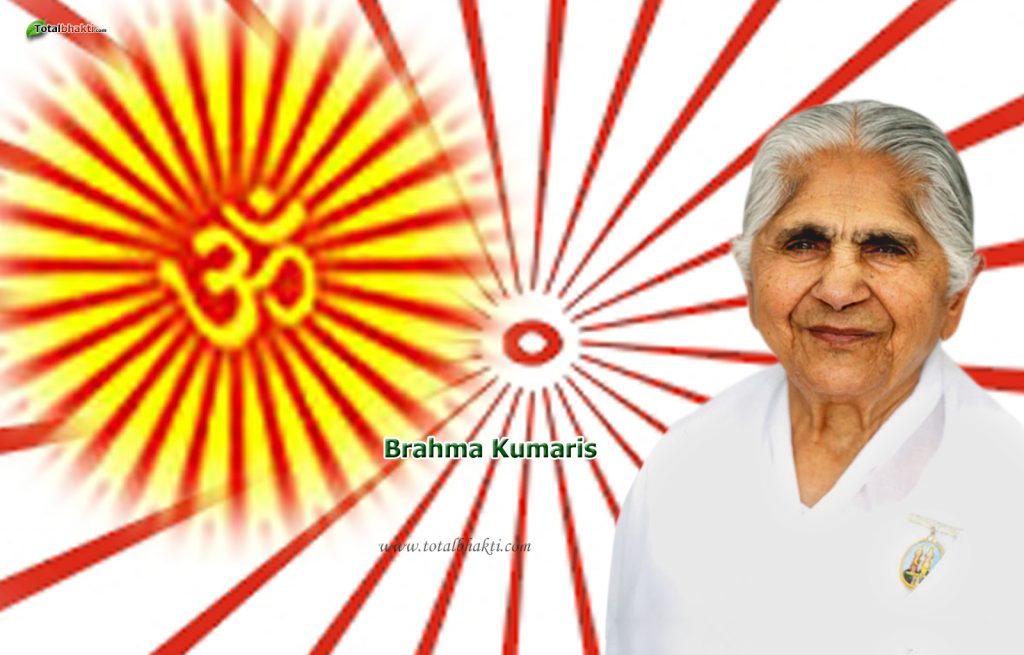
“In India, God is not different for the Hindus, Muslims and for Parsis. The truth is one, only different people may express it differently. We are such a country which does not believe in imposing our views on anyone. We are such people who believe that knowledge has no limits, knowledge has no timing, knowledge is not bound by anything, knowledge does not need any passport, knowledge does not need a visa,” the PM said.The Prime Minister, Shri Narendra Modi, addressed the 80th anniversary celebrations of the Brahma Kumaris family, via video conferencing.
Welcoming the delegates to the International Conference and Cultural Festival from India and abroad, the Prime Minister paid his respects to Dada Lekhraj, the founder of Prajapita Brahmakumari Ishvariya Vishvidyalaya. He also praised Dadi Janki ji, describing her as a true Karma Yogi, who continues to serve society even at the age of 100 years.
The Prime Minister appreciated the work done by the Brahma Kumaris institution in many fields, including in solar energy. He called for expanding the use of digital transactions to bring down corruption.
The way Brahma Kumaris family have taken forward the reach of solar energy actively is commendable. By 2030, India aims to generate 40% energy from non-fossil fuels. By 2022, our aim is to ensure 175 GW of clean energy. About Rs. 11,000 crore has been saved by the use of LED bulbs. Brahma Kumaris organisation can help spread this message,” the PM further said.
Early history
The Brahma Kumaris World Spiritual University (Prajapita Brahma Kumaris Ishwariya Vishwa Vidyalaya) or BKWSU is a new religious movement that originated in Hyderabad, (current-day Pakistan) during the 1930s. The Brahma Kumaris (Sanskrit:ब्रह्माकुमारी, “daughters of Brahma”) movement was founded by Dada Lekhraj Kripalani, who later took the name Brahma Baba It is distinctly identified by the prominent role women play in the movement.
The Brahma Kumaris teaches a form of meditation that focuses on identity as souls (as opposed to bodies). They believe that all souls are intrinsically good and that God is the source of all goodness. The university teaches to transcend labels associated with the body, such as race, nationality, religion, and gender, and aspires to establish a global culture based on what they call “soul-consciousness”.
In May 1950 Om Mandali moved to Mount Abu in Rajasthan India. From the beginning, the organization’s focus had been on education, not worship, and for this reason it renamed itself as Brahma Kumaris World Spiritual University. In 1952, after a 14-year period of retreat, a more structured form of teaching began to be offered to the public by way of a seven lesson course.
After an unpromising beginning when it almost ran out of funds, from the mid 1950s the Brahma Kumaris began an international expansion programme. Since the 1970s it first spread to London and then to the West. The most visible manifestations of the religion are its “Spiritual Museums” located in most major Indian cities.
In 1980 the Brahma Kumaris became affiliated to the United Nations Department of Public Relations as a Non-Governmental Organisation. In 1983 when the Brahma Kumaris achieved consultative status with the Economic and Social Council at the United Nations. The Brahma Kumaris now has a permanent office space in New York for their work with the United Nations.
The leadership and membership of the BK movement remains primarily female, for example, in the UK only one-third of the 42 centres are run by males and 80% of the membership are women.As of February 2015, centres are mostly in followers’ own homes with a tendency toward middle or upper class membership. Estimates for its worldwide membership ranges from 35,000 in 1993 to 400,000 in 1998to 450,000 in 2000, however, it is reported that many were probably not completely committed to the group’s worldview.
In 2008, the movement claimed to have more than 825,000 regular students, with over 8,500 centers in 100 countries.
Brahma Kumaris recommend a specific lifestyle in order achieve greater control over physical senses. However many participate in a casual way electing to adopt whichever beliefs and lifestyle disciplines in the following list they wish:
- Complete celibacy, in or out of marriage
- Sattvic vegetarianism, a strict lacto-vegetarian diet(excluding eggs, onions, garlic and/or spicy food) cooked only by the self or other members of the Brahma Kumaris.
- Abstaining from alcohol, tobacco and non-prescription drugs.
- Daily early morning meditation at 4:00 to 4:45 am, called ‘Amrit Vela’.
- Daily morning class at approximately 6:30 am.
- Men and women traditionally sit on separate sides of the room at the centres during classes.
- Brahma Kumaris can be identified by their frequent adoption of wearing white clothes, to symbolise purity.
- Students often prefer to keep the company of yogis (soul conscious individuals) as opposed to bhogis (those given over to worldly pleasures).
